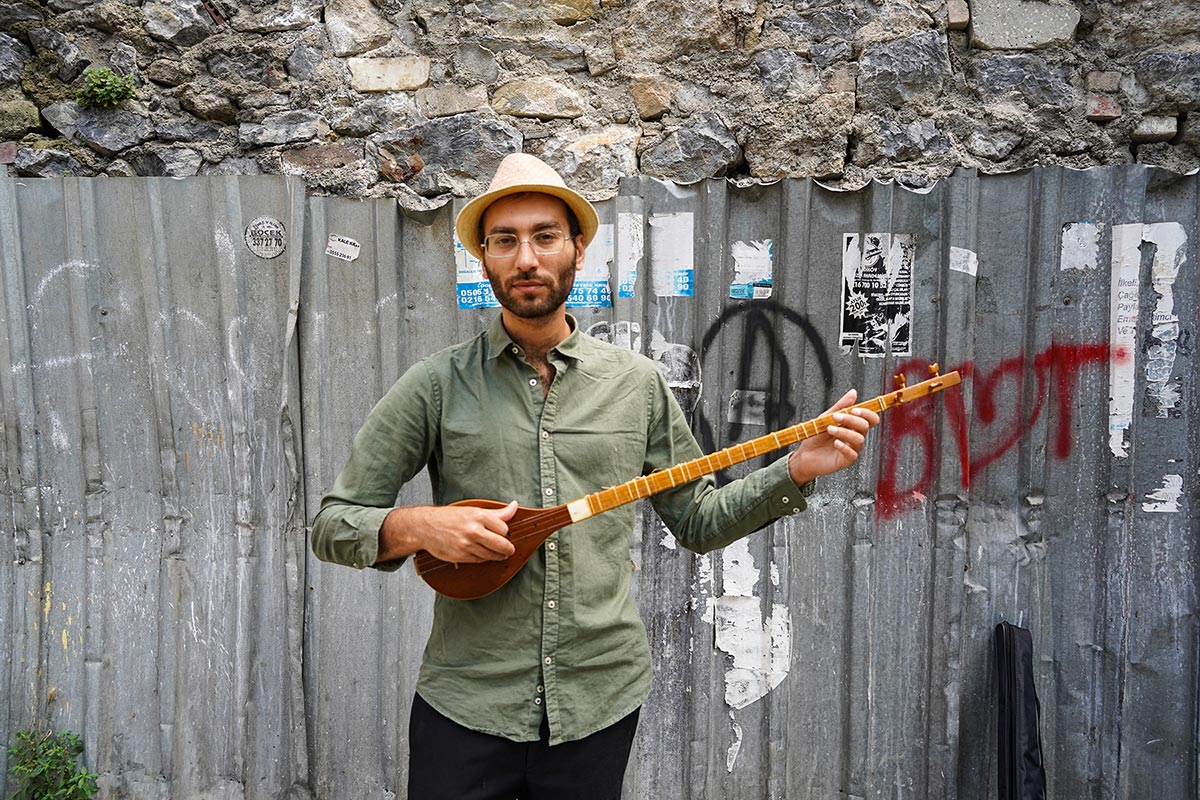Meet the Artists - Bardia Hafizi
About: Bardia Hafizi finished his bachelors in Solid State Physics from Shahid Beheshti University in 2015. He briefly joined the masters program at Shiraz University in 2016, focusing on Complex Systems, before changing tracks to focus on his musical activities.
Since 2002, Bardia has been playing the Persian goblet drum tombak in the traditional genres of music in Iran. He also started learning the string instrument setar in 2010, focusing on Classical Iranian repertoires as well as older Persian traditions. In 2019, he left Iran to enrol in the music program at the Center for Advanced Research in Music, Istanbul Technical University, focusing on the ethnomusicology of rhythm in Iran. In his master’s thesis, Bardia traced a line of tradition of tombak and rhythmic performance in Iran -supervised by Dr. Robert O. Beahrs- from the oldest masters documented in the 19th century through the modernization period and the formation of Iran as a nation-state. Currently, he is doing his PhD in music at the same institute, focusing on sonic ecologies and critical histories.
How do you describe your practice?
I am a multidisciplinary sound artist focusing on the phenomena of rhythm and time as expressions of multi-species interaction; repetition is an echo of kinship formed through years of cohabitation, sounding co-evolution and mapping aesthetic formation in this cycle we call life, from the first breath we take til the last of our kind. My practice is the poetic performance of soundscapes through ‘ears’ situated in different bodies, different locations, and different times.
What are your influences, what inspires you?
I am inspired by deconstructing the concepts of ‘listening’, ‘sounding’ and ‘nature’ in multiple readings that exaggerate their political implications and simultaneously neutralize the effect of modernity on multi-species empathy. My narratives, though stemming from universal crisis and end-of-world scenarios, are based on the idea of hope for the future and justice for all beings.
Where are you based and what is your background in terms of education?
I originally hail from Tehran, Iran, where I learned traditional music and instruments. Currently, I am based in Istanbul; I am in my first year of - education-based - PhD program at the Center for Advanced Research in Music, Istanbul Technical University.
What does engaging with nature mean to you as an artist?
Recently I have been contemplating the concepts of ‘colonialism’ and ‘imperialism’ and how they apply not only to the histories of people-versus-people, but of human-versus-nonhuman. Engaging with nature (however one defines it) for me is a humbling experience, constantly reminding me of how much destruction our species has brought to the world, a world in which we cohabit.
What does it mean to be selected for the summer school?
For a while now I have been contemplating the nature of musicking and what my own practice is trying to express; I have been conducting research into the social, psychological, as well as ecological aspects of sound in our world, and how it can be a site of individual and collective transformations. This summer school will be my first chance, since turning away from traditional music-making, to perform my art practice in a formal setting. I also appreciate being able to witness other artists as they go through the process of constructing their own performances.
On another level, the idea of “sensing the forest” as opposed to sensing a single tree, or any other non-human life form, carries with it a sense of community and habitat which are very close to my own reflections about the nature of art in a post-humanistic world. My only wish is that I can figure out enough funds to make the travel from Istanbul to Alice Holt!
